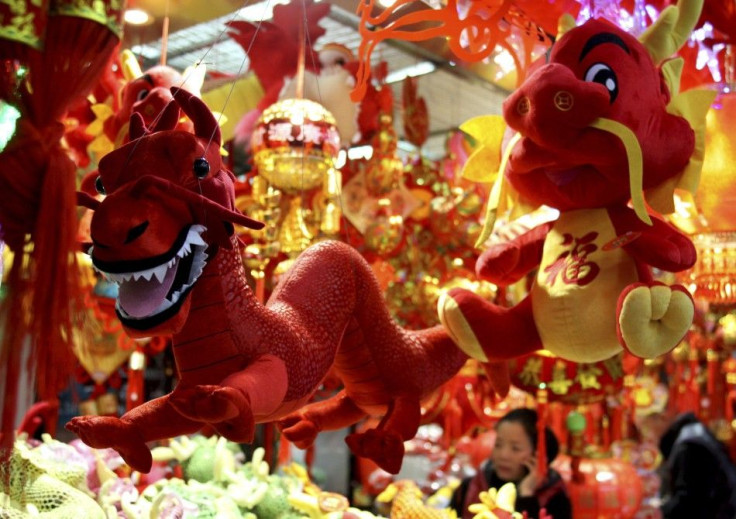Chinese New Year 2012: Top 10 Superstitions

Beyond the obvious cultural significance tied to the Chinese calendar, the Chinese New Year is strongly associated with a colorful variety of Chinese traditions, myths and superstitions. China's cultural heritage, spanning more than 5,000 years, has imparted symbolic meaning to the festivities and customs followed by Chinese communities worldwide during the celebration.
Here is a roundup of the superstitions surrounding the Chinese New Year:
1. No Cleaning - The household has to be thoroughly cleaned before the New Year's day because it is believed that cleaning sweeps away bad luck from the last year. However, all cleaning equipment should be put away before the New Year's Eve so that good luck is not swept away. Even though sweeping is allowed after the first day of a New Year, the garbage and dust shouldn't be carried through the front door, as it may result in death or estrangement of a family member.
2. No Ghost Stories - According to Chinese beliefs, what happens on the New Year's Eve sets a precedent for the rest of the year. Foul language and unlucky words are a taboo on the first day of the New Year. Since ghost stories essentially involve mentions of death, children as well as elders are not allowed to tell stories related to spirits, zombies or the undead.
3. No Washing Hair - Though you are encouraged to get a hair-cut on the first day, you're not supposed to wash your hair to ensure that good luck is not washed away.
4. No Books - Book stores remain closed on the New Year's Eve as buying books is not allowed. The reason stems from the fact that book is a homonym for lose in Cantonese. However, apparently, there is no restriction on reading.
5. No Shoes - Shoe shopping is restricted on the first day because shoes is a homonym for rough in Cantonese.
6. No Crying - Crying is also a strict no-no on New Year's Eve which is why children are spared from spanking or punishments on the first day.
7. No Sitting in Bedroom - It is unlucky to meet anyone in their bedroom on the New Year's Eve, which is the reason why everyone, including infants, elderly and even those who are sick, are made to dress up and sit in the living room.
8. No Sharp Objects - Handling sharp objects is considered bad omen on the first day of the New Year, as they may cut off good fortune. It is recommended to put away knives and scissors the previous day.
9. Red is Good - Bright red clothes, decorations and ornaments are highly recommended for the Chinese New Year. Children receive money in red paper envelopes from parents who wish them a healthy and happy New Year. Red paper-cuts and couplets with popular themes of good fortune or happiness, are used to decorate the household.
10. Songbirds are Good - The first person you meet on the New Year's eve holds great significance on how lucky you would be throughout the year. It is considered lucky to see or hear songbirds, red-colored birds or swallows on New Year's Eve.
© Copyright IBTimes 2024. All rights reserved.












